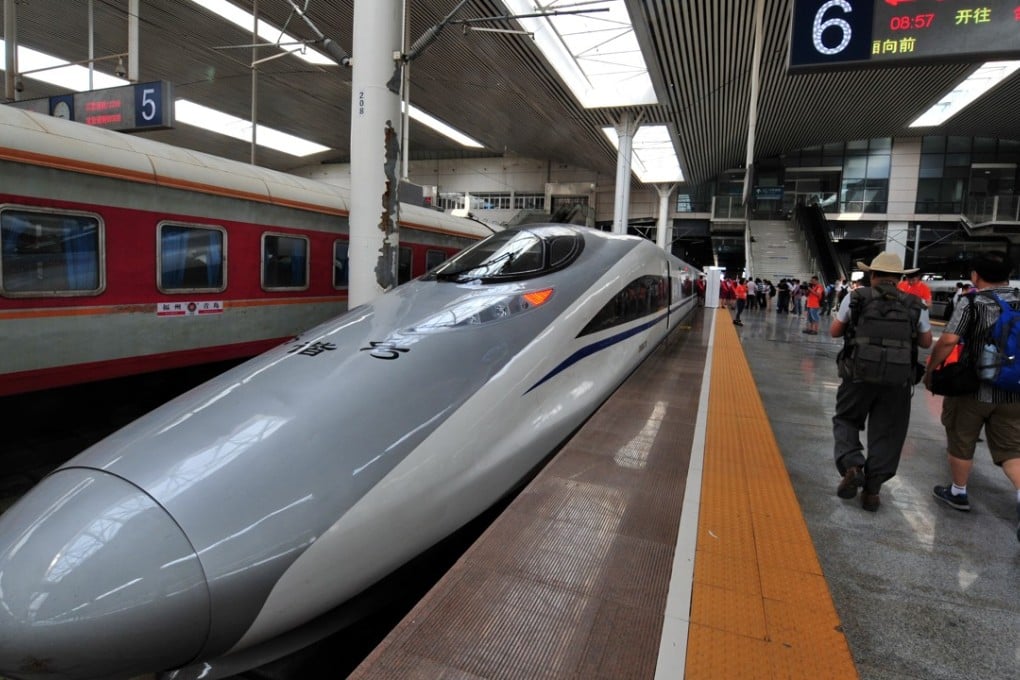China says its bullet train technology was stolen, days after US trade probe move
Officials urged to do more to protect intellectual property in commentary published two days after US announcement

Beijing has apparently hit back at US plans to investigate intellectual property violations by China, with officials urged to do more to protect bullet train technology from theft.
The call came in a commentary published in the official Procuratorial Daily on Wednesday, two days after it was announced that US President Donald Trump would authorise his trade representative to look into China’s trade practices.
Developing countries had “spied on and stolen” China’s fast-train technology to get the competitive edge at the expense of Chinese companies, the commentary said, without naming the countries.
Its authors – Gao Xiaoyi, a vice chief of the Shanghai People’s Procuratorate, and Sun Dawei, of the Shanghai Railway Transport Procuratorate – said China had developed its own technology to build an extensive high-speed railway network but had failed to adequately protect its know-how.
They went on to say that China urgently needed to protect its intellectual property, specifically in relation to bullet trains, and should follow the lead of Western countries by securing patents when it developed new technology.